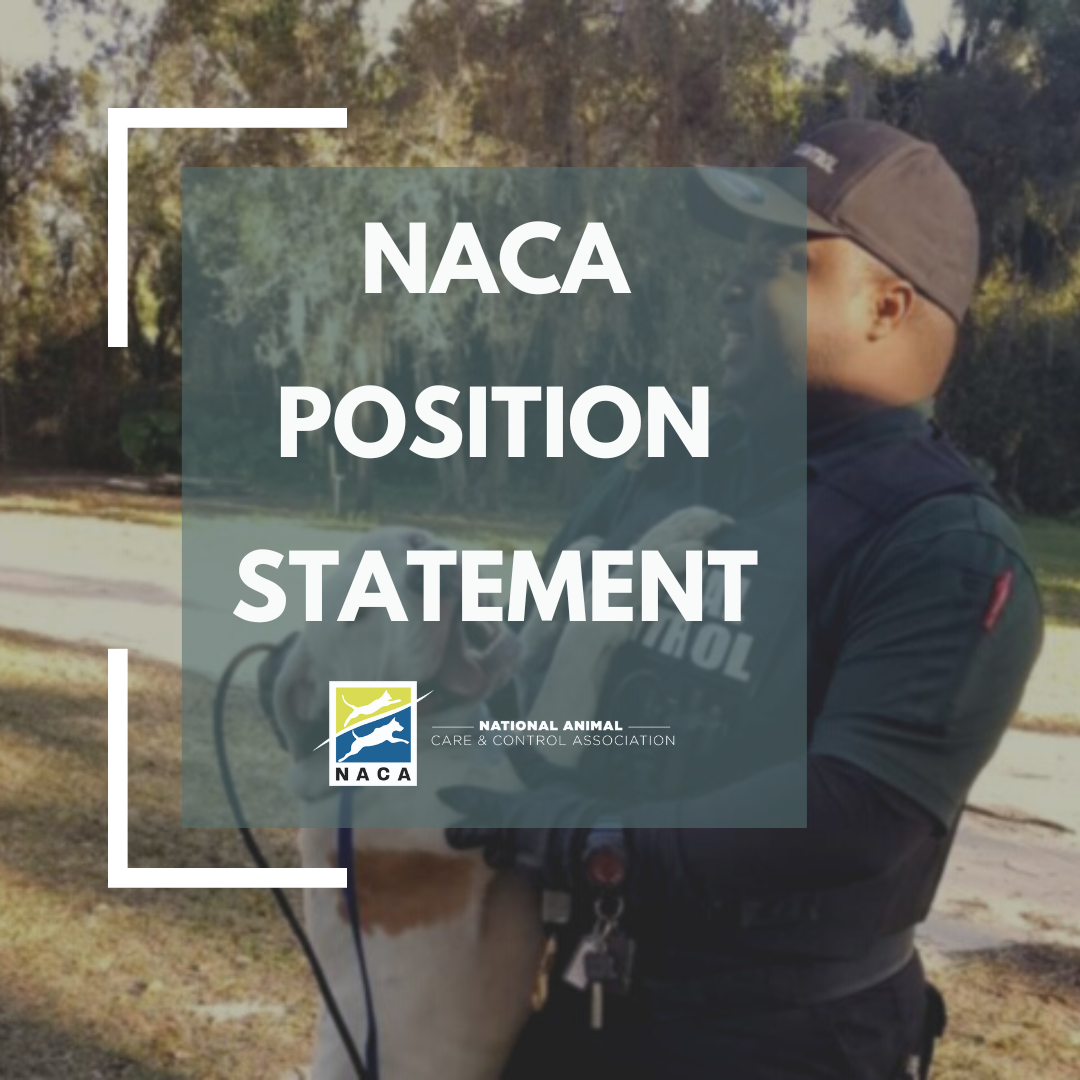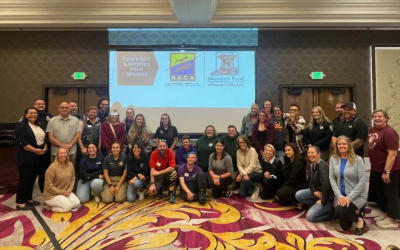NACA Is Opposed to Breed Specific Legislation
The National Animal Care & Control Association’s fundamental goal is to achieve safe and humane communities; Our priority is safety, first and foremost, in the most effective and most comprehensive way possible. Because everyone benefits from a safe society – both people and pets. Sometimes, however, dog encounters go awry. According to the National Canine Research Council, “96% of dog bite injuries presenting at ER’s are minor – the person is treated and released. Dog bite injuries are among the highest rate of treat and release for any injury tracked by the CDC. Less than 1.5% require hospitalization, unlike injuries in general, which result in hospitalization more than 4 times as often.”
At NACA, we believe our communities can make these unfortunate incidents even less common. However, breed-specific legislation (BSL) or breed discrimination is ineffective as it fails to enhance public safety, is expensive to enforce, and violates the property rights of dog owners. We want our communities to be protected against dangerous dogs – and we want abused dogs to be protected from reckless owners. The focus of any policy should be on the behavior of the dog and the behavior of the owners.
NACA believes that breed-specific legislation (BSL) is breed discrimination and is critically ineffective. BSL fails to enhance public safety, has significant costs associated with enforcement, and violates dog owners’ property rights. Public safety from nuisance or dangerous dogs is a priority, as is protecting dogs from dangerous or harmful owners and thus the focus of any policy should be focused on the behavior associated with such acts.
According to the Animal Legal and Historical Center at Michigan State University, “Breed-Specific Legislation (BSL) is, in simple terms, a statute or regulation that is directed toward one or more specific breeds of dogs. The majority of BSL is focused on breeds traditionally known as “dangerous,” or those that have demonstrated particular propensities for aggression and violent behavior.”
BSL or breed discrimination may include any of the following:
- Mandatory spay-neuter
- Mandatory muzzling
- Liability insurance requirements
- Special licensing and additional fees
- Mandatory microchipping or tattoos
- Owner/walker age requirements
- Property posting requirements
- Confinement and leash requirements
- Breed-specific pet limits sale or transfer notification requirements
- Restrictions on access to certain public spaces with the dog [e.g.: public parks,
school grounds] - Required town-issued items [e.g.: fluorescent collar; vest]
- Training requirements
- A requirement that photos of the dog and/or owner be kept on file as appropriate with the jurisdiction
- Insurance policies that discriminate against breeds of dogs
- Housing policies that discriminate against breeds of dogs
NACA agrees with the American Veterinary Medical Association’s statement:
“The issue of dangerous dogs, dog bites and public safety is a complex one. Any dog can bite,
regardless of its breed. It is the dog’s individual history, behavior, general size, number of dogs
involved, and the vulnerability of the person bitten that determines the likelihood of biting and
whether a dog will cause a serious bite injury. Breed-specific bans are a simplistic answer to a
far more complex social problem, and they have the potential to divert attention and resources
from more effective approaches.”
NACA also agrees with the 2012 American Bar Association resolution that:
“urges all state, territorial, and local legislative bodies and governmental agencies to adopt
a comprehensive breed-neutral dangerous dog/reckless owner laws that ensure due
process protections for owners, encourage responsible pet ownership and focus on the
behavior of both dog owners and dogs, and to repeal any breed discriminatory or breed-
specific provisions.”
Rather than implementing BSL, NACA recommends a four-pronged approach provided by the National Canine Research Council to reduce dog bites in communities.
These are:
- Focus on the behavior of the dog and the behavior of the owner.
- Improved husbandry practices, a better understanding of canine behavior, and
increasing knowledge of pet owners regarding safety around dogs. - Consistent enforcement of dangerous dog/ dangerous owner ordinances in
communities. - Effective laws that hold owners responsible for custody and control of dogs
regardless of breed or type.
References:
Community cost of BSL: https://resources.bestfriends.org/article/breed-specific-legislation-bsl-cost-calculator
National Canine Research Council BSL Q and A:
https://www.nationalcanineresearchcouncil.com/public-policy/breed-specific-legislation-faq
Dog Bites Problems and Solutions:
https://www.nationalcanineresearchcouncil.com/news/newedition-dog-bites-problems-
and-solutions
ASPCA Position Statement on Breed-Specific Legislation: Position Statement on Breed-Specific Legislation | ASPCA
The Humane Society of The United Stated Breed–Specific Legislation: Breed–Specific
Legislation | The Humane Society of the United States





